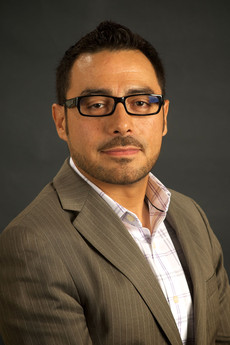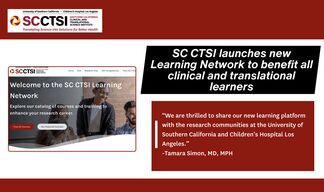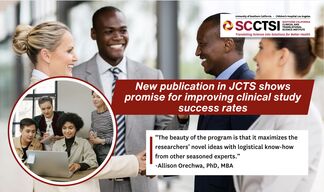The SC CTSI Is Seeking Applications for New Team Building Award
The award will provide rapid funding for activities that promote the SC CTSI's goal of assembling new multidisciplinary teams focused on clinical and community research.
To encourage the development of multidisciplinary teams in clinical and community health research, the Southern California Clinical and Translational Science Institute (SC CTSI) has launched a team building grant program.
The awards provide up to $5,000 for a wide range of activities to promote the creation of small research teams to span not only diverse academic disciplines, but also to create connections between academic and community health professionals and stakeholders.
"We're looking for new ideas and approaches to promote communication and collaboration between people and disciplines who haven't traditionally worked together," said Sarah Hamm-Alvarez, PhD, Director of Research Development at SC CTSI. "Our goal is to break down barriers and to get people who have never communicated before to start talking and working together in clinical and translational research."
Advancing team science
The federal government's National Center for Advancing Translational Science (NCATS) has called upon health research hubs such as USC and CHLA to expand multidisciplinary and transdisciplinary research to improve quality of clinical and translational science and accelerate the development of real-world health interventions.
A fundamental goal of team science is to harness the knowledge and viewpoints of people from different areas of expertise and to focus them on complex clinical and community health-research questions. This is often easier said than done, however, explained Hamm-Alvarez. "The award is one method we've developed to help our researchers generate new ways to build teams," she said. "Ultimately we will share the best ideas with the national clinical and translational research community."
Additionally, as part of their team science mission, the SC CTSI will offer a workshop later this year; date and other details to be announced.
A call to explore technology-based collaboration tools
The award is open to a broad range of ideas for team-building activities, including conferences, workshops, seminars—and any other novel concepts researchers may dream up. Highest priority will be given to proposals to explore new, internet- and technology-based collaborative platforms, such as Blackboard Collaborate or Open Science Framework.
"We're particularly eager to see how these collaboration tools can connect people throughout the research cycle, just as technology has enabled collaboration in business and other aspects of modern life," said Aileen O. Dinkjian, MPH, Research Development and Team Building Administrator. "These technologies have been available to researchers at USC for some time but they need to be much more fully explored."

The SC CTSI has so far awarded one team building grant under the program. The PI on the award was Erick Guerrero, PhD, associate professor in the USC Suzanne Dworak-Peck School of Social Work. He assembled a multidisciplinary team to study opioid overuse, drawing USC researchers from social work, nursing and emergency medicine. Guerrero will use the grant for a range of in-person and virtual team-building activities, including regular seminar sessions and development of a group white paper.
Full-time faculty at USC and CHLA are eligible to apply for the award as principal investigators (PI). Postdocs, residents, fellows, students and community members are eligible to serve as co-PI. The award has a rolling deadline; applications can be submitted any time. Funding for approved applications will be available within four weeks. Click here to access the application and more information, or to contact the funding team.



